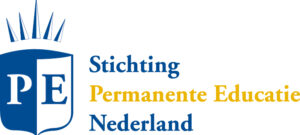Certified Open Source Intelligence Specialist®
You can obtain the Certified Open Source Intelligence Specialist® diploma if you have completed the classroom three-day OSINT training I (Beginner) and the OSINT training (Professional) with us, which together form the SPEN Register training to become a Certified Open Source Intelligence Specialist®. If you have successfully completed our training, you may use the title COS® and you may participate in the OSINT training III (Expert), which is the third module of our Post HBO Registertraining to become a Certified Open Source Intelligence Expert®.
Achieve the COS® title

About the training program
Millions of messages, photos and videos are posted on the internet and social media every day. All these pieces of information are an invaluable asset for anyone who is professionally involved in collecting and analyzing information from the Internet.
The SPEN Registered Certified Open Source Intelligence Specialist® course is a six-day practical and interactive course that focuses on gathering information from public sources on the internet and social media.
By following the SPEN Registered Certified Open Source Intelligence Specialist® course, you will gain knowledge and skills to search and analyze information on the internet in a safe and effective manner within the framework of the law, in order to store this information in a structured manner. and to report on this in a thorough manner.
The knowledge and skills acquired in this SPEN Register training offer you added value to work as a detective, analyst or researcher within the public and private sector or within an organization in which you are involved in investigation, enforcement or intelligence. enjoys gathering information on the Internet.
The SPEN Registered Certified Open Source Intelligence Specialist® training course is intended for investigators, analysts and researchers from within the public and private sector and for anyone who is involved in gathering information in the context of investigation, enforcement, supervision or intelligence. internet.
This OSINT-training is suitable for law enforcement, intelligence personnel, private investigators, insurance investigators, researchers, recruiters, sourcers, customer due diligence analyst, journalists, lawyers, governments and (local) authorities.
The SPEN Registered Certified Open Source Intelligence Specialist® training consists of the OSINT training I (Beginner) and the OSINT training II (Professional).
The OSINT training I (Beginner) consists of three teaching days of eight hours each plus four hours of self-study and ends with a digital exam. If you successfully pass the exam, you will receive the Certified Open Source Investigator® certificate. Obtaining this certificate gives you access to the OSINT training II (Professional).
The OSINT training II (Professional) consists of three teaching days of eight hours each plus eight hours of self-study and ends with a digital exam. If you successfully pass the exam, you will receive the official Certified Open Source Intelligence Specialist® diploma.
No specific prior knowledge is required to participate in the SPEN Register training. Experience with surfing the internet and using social media is considered an advantage.
If you wish to participate in the OSINT training II (Professional) without having followed the OSINT training I (Beginner), you can take an admission test. If you complete this test with a sufficient score, you can participate in the OSINT training II (Professional).
However, participating in the OSINT training II (Professional) is not equivalent to completing the Registered training to become a Certified Open Source Intelligence Specialist®. You cannot therefore receive the Certified Open Source Intelligence Specialist® diploma simply by completing the OSINT training II (Professional). You will receive a certificate of participation instead.
The study load amounts to a total of 60 hours. These study load hours consist of six days of eight contact hours each and 12 self-study hours.
This SPEN Registertraining concludes with a digital exam, which you can take from home within one month after the last day of classes. You pass the exam when you have answered at least 70% of all exam questions with a correct answer.
The exam tests whether you have acquired sufficient knowledge and skills to conduct structured and effective internet research in a safe manner and to be able to report on this in a thorough manner.
During the exam, this knowledge and skills are tested on the one hand through practical assignments in which you have to conduct your own online research and on the other hand through multiple choice assignments in which you have to select the correct answers.
After successfully completing the exam, you will receive the official diploma Certified Open Source Intelligence Specialist® and you will be registered in the CPION Register of Examiners.
Competencies and learning objectives
With the title Certified Open Source Specialist® you indicate that you have certain competencies to conduct a safe and effective OSINT investigation. The competencies and learning objectives relate to formulating an investigation strategy, applying a threat assessment, acting within laws and regulations, collecting, monitoring, recording and processing data and reporting findings. In addition to the competencies and learning objectives of the OSINT training I (Beginner), the OSINT training II (Professional) has the following competencies and learning objectives.
Part of the SPEN-Registertraining
The OSINT-training II (Professional) is the second of two modules that are part of the SPEN-Registertraing Certified Open Source Intelligence Specialist®.

Part of the Post HBO-Registertraining
The OSINT-training II (Professional) is the second of three modules that are part of the Post HBO-Registertraining Certified Open Source Intelligence Expert®.


